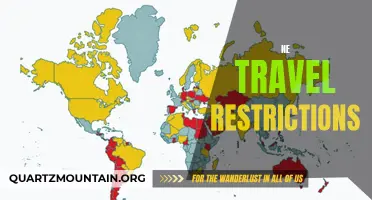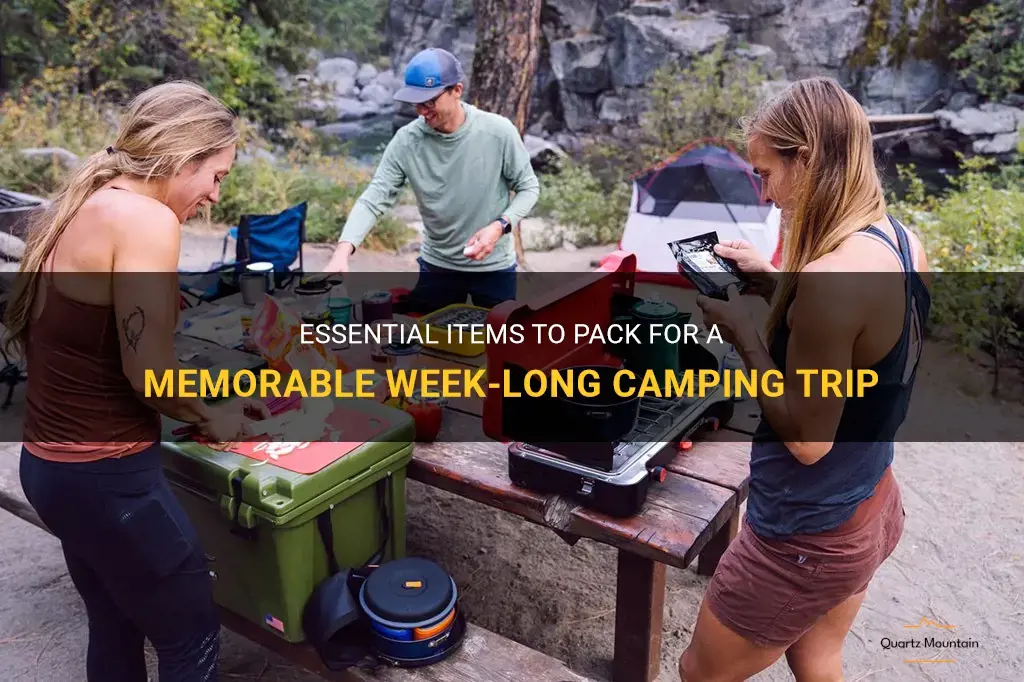
Are you planning a week-long camping trip and looking for guidance on what to pack? Look no further! In this article, we will cover all the essential items you need to make your camping trip one to remember. From camping gear to food supplies, we've got you covered, so keep reading to ensure you have everything you need for a memorable adventure in the great outdoors.
| Characteristics | Values |
|---|---|
| Tent Size | 4-6 person |
| Sleeping Bag | 0 degree rating |
| Sleeping Pad | Self-inflating |
| Cooking Stove | Propane-powered |
| Cookware | Pot, pan, utensils |
| Food | Non-perishable items |
| Water | At least 1 gallon per day per person |
| Clothing | Layered for various weather conditions |
| Footwear | Hiking boots and sandals |
| Rain Gear | Waterproof jacket and pants |
| Personal Hygiene | Soap, toothbrush, toilet paper |
| First Aid Kit | Bandages, medications |
| Insect Repellent | DEET-based spray |
| Navigation | Map, compass, GPS |
| Lighting | Flashlight, headlamp |
| Fire Starting | Matches, lighter, fire starter |
| Multi-tool | Swiss Army knife, multitool |
| Communication | Cell phone, walkie-talkies |
| Entertainment | Books, cards, games |
| Emergency Whistle | Loud and durable |
| Extra Cash | Small bills for emergencies |
| Trash Bags | For waste disposal |
| Camping Chairs | Portable and lightweight |
| Sun Protection | Sunscreen, hat, sunglasses |
What You'll Learn
- What are the essential clothing items to pack for a week-long camping trip?
- What type of camping gear is necessary for a week-long trip?
- How much food and water should I pack for a week-long camping trip?
- What personal hygiene items should I bring for a week-long camping trip?
- Are there any specific items or tools that are useful for a week-long camping trip that I might not think to pack?

What are the essential clothing items to pack for a week-long camping trip?
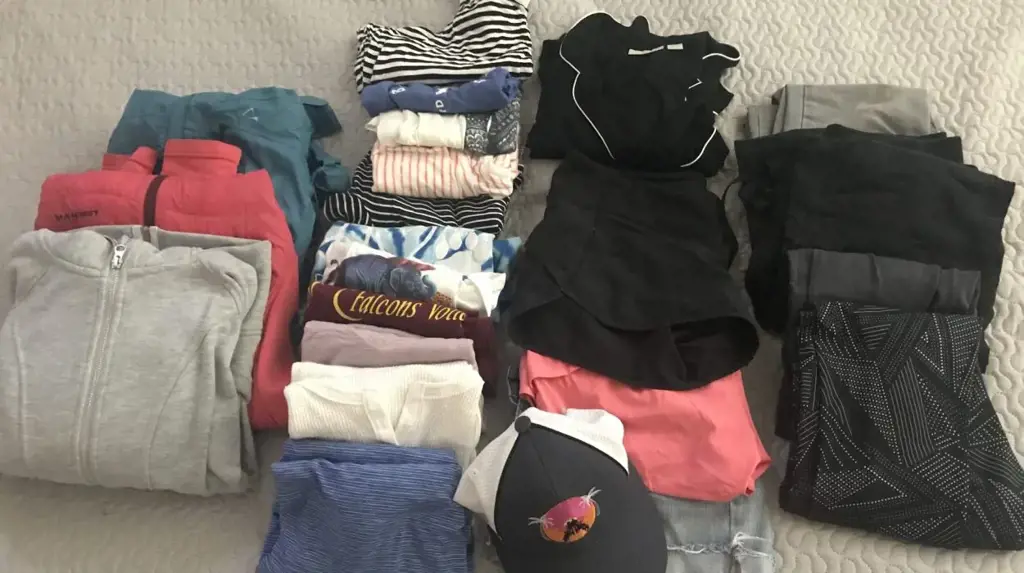
When preparing for a week-long camping trip, it is important to pack wisely and ensure you have all the essential clothing items to keep you comfortable in various weather conditions. Here is a list of must-have clothing items to pack for your outdoor adventure.
- Base Layers: Start with a good set of base layers, including long-sleeve tops and leggings made from moisture-wicking material. These will help regulate your body temperature and keep you dry, whether it's hot or cold outside.
- T-shirts and Tops: Pack a few lightweight t-shirts and tops for everyday wear. Opt for breathable fabrics such as cotton or linen to stay cool in warm weather.
- Pants and Shorts: Depending on the forecast and the activities you plan to undertake, pack a mix of pants and shorts. Lightweight, quick-drying hiking pants are ideal for cooler weather and offer protection against insects and vegetation. On the other hand, shorts are perfect for hot days and can provide ease of movement during activities such as hiking or swimming.
- Jackets and Outer Layers: Even during the summer months, evenings in the wilderness can be chilly. Be sure to pack a warm fleece or wool jacket to keep you cozy. Additionally, a waterproof and windproof outer layer is essential to protect you from unexpected rainstorms.
- Swimwear: If your camping trip includes opportunities for swimming or water activities, don't forget to pack swimwear. A comfortable bathing suit or trunks are essential for enjoying the crystal-clear lakes or refreshing rivers you may encounter.
- Undergarments and Socks: Pack enough underwear and socks to last the week. Consider bringing a mix of moisture-wicking and cotton options to cater to different weather conditions.
- Footwear: Choose your footwear based on the terrain and activities you will be engaging in. A sturdy pair of hiking boots is essential for hikes, while comfortable sandals or water shoes are perfect for water activities or lounging around the campsite. It is also a good idea to pack a pair of cozy slippers to wear around the camp in the evenings.
- Hats and Sunglasses: Protect yourself from the sun by packing a wide-brimmed hat or a baseball cap. Sunglasses with UV protection are also essential to shield your eyes from harmful rays.
- Accessories: Don't forget to bring accessories such as a lightweight and quick-drying towel, a buff or bandana that can be worn in different ways, and a belt to secure your pants during activities.
- Layering Options: Weather conditions can change rapidly in the wilderness, so it is important to pack clothing items that can be layered for extra warmth. Bring a few long-sleeve shirts or sweaters that can be worn over your t-shirts, as well as a lightweight down or synthetic jacket that can be easily packed in your backpack.
Remember to pack your clothing items in waterproof bags to protect them from moisture or spills. It is also a good idea to pack a small travel-size laundry detergent, allowing you to wash your clothes and wear them again if needed.
By packing these essential clothing items, you will be well-prepared to enjoy a week-long camping trip in comfort and style. Whether you are exploring the wilderness, hiking, or simply relaxing by the campfire, having the right clothing can make all the difference in ensuring a memorable and enjoyable experience.
Essential Packing Guide for a 10-Day Adventure in Tuscany
You may want to see also

What type of camping gear is necessary for a week-long trip?
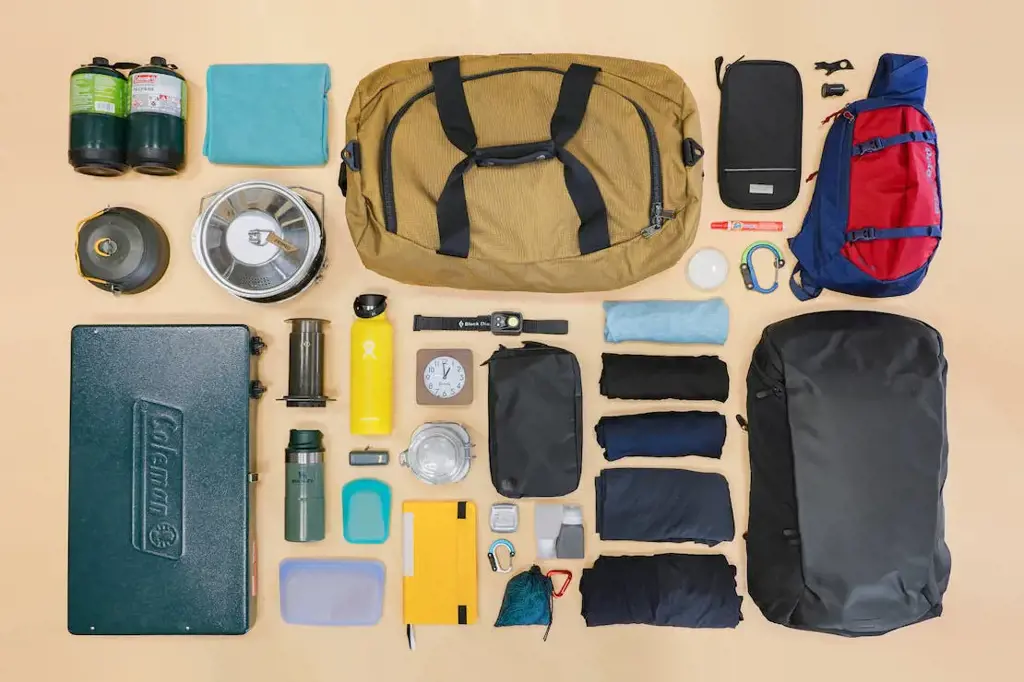
Camping is a popular outdoor activity that allows individuals to disconnect from technology and reconnect with nature. Many people enjoy going on week-long camping trips to fully immerse themselves in the great outdoors. However, in order to have a successful and comfortable camping experience, it is important to have the right gear. In this article, we will discuss the necessary camping gear for a week-long trip.
- Tent: A reliable and spacious tent is essential for a week-long camping trip. Look for a tent that can comfortably sleep the number of people in your group and has a waterproof rainfly. Additionally, consider the weight and size of the tent, as you will have to carry it to your campsite.
- Sleeping Bags: Investing in high-quality sleeping bags is crucial for a comfortable night's sleep. Look for sleeping bags that are lightweight, warm, and can withstand colder temperatures. Consider the temperature rating of the sleeping bag and choose one that is suitable for the climate you will be camping in.
- Camping Stove and Cookware: Unless you plan on eating cold meals for an entire week, a camping stove and cookware are necessary for cooking meals. Choose a portable camping stove that is easy to use and has sufficient heat output. Additionally, bring along lightweight cookware, such as a pot and a pan, utensils, and plates.
- Food Storage: It is important to keep your food safe and protected from critters while camping. Invest in bear-resistant food containers or bear bags to prevent animals from accessing your food. Additionally, bring along coolers to store perishable food items and ice packs to keep them fresh.
- Backpacks and Hiking Gear: If you plan on going on hikes or exploring the surrounding areas, a comfortable backpack is necessary to carry essentials. Look for a backpack that has a good suspension system and adjustable straps. Additionally, bring along appropriate hiking gear, such as sturdy hiking boots, a map, and a compass.
- Lighting: A reliable source of lighting is important for navigating around the campsite during the night. Bring along headlamps or flashlights for each member of your group. Additionally, consider bringing lanterns or string lights to illuminate the camping area.
- Camping Chairs and Tables: While it is possible to sit on the ground, having camping chairs and tables can make the camping experience more comfortable. Look for lightweight and foldable chairs and tables that are easy to carry and set up.
- First Aid Kit: Accidents can happen while camping, so it is important to have a well-stocked first aid kit. Include items such as bandages, antiseptic wipes, pain relievers, and any necessary medications.
- Clothing and Personal Items: Pack appropriate clothing for the weather conditions, including layers for colder temperatures. Additionally, bring personal items such as toiletries, sunscreen, insect repellent, and a hat.
- Entertainment: While camping is a great way to disconnect from technology, it is still important to have some form of entertainment. Bring along books, playing cards, or other games to keep yourself entertained during downtime.
In conclusion, a week-long camping trip requires the right gear to ensure a comfortable and enjoyable experience. From a reliable tent to essential camping equipment, being well-prepared will make your trip more enjoyable. Remember to consider the climate, number of people, and activities you plan on doing when selecting your camping gear. So pack your gear, embrace nature, and enjoy your week-long adventure!
Essential Items to Pack for a Meaningful Mission Trip
You may want to see also

How much food and water should I pack for a week-long camping trip?
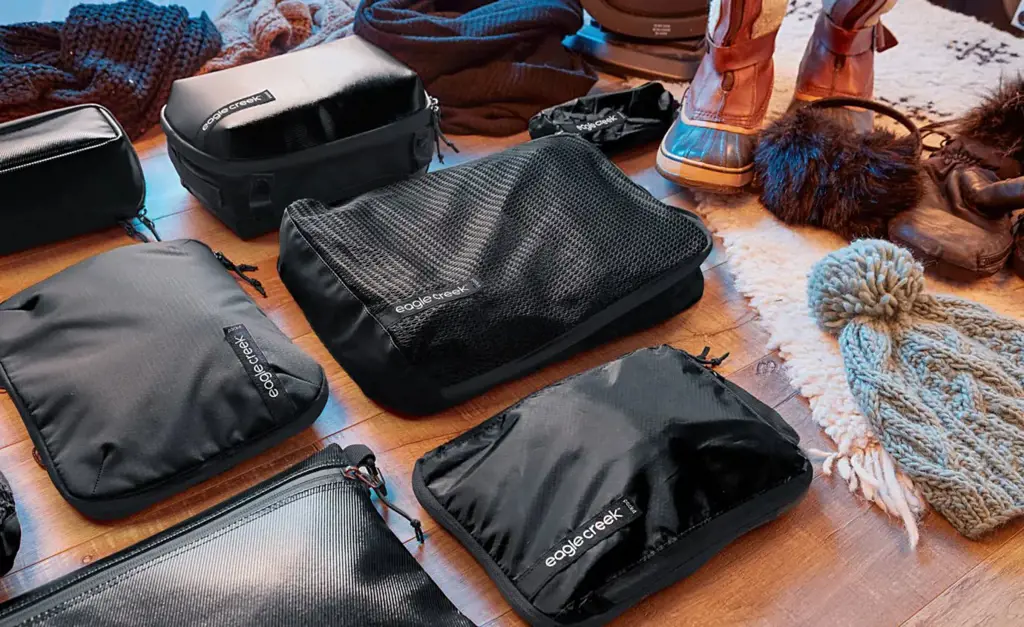
When planning a camping trip, it's important to pack enough food and water to sustain yourself for the duration of your trip. This ensures that you stay properly nourished and hydrated while enjoying the great outdoors. To determine how much food and water to pack for a week-long camping trip, consider factors such as your activity level, climate, and personal preferences.
- Calculate your caloric needs: The first step in determining how much food to pack is to calculate your daily caloric needs. This can be done by multiplying your weight in pounds by a factor of 12-15, depending on your activity level. For example, a 150-pound person would need between 1800-2250 calories per day if they have a moderate activity level.
- Plan your meals: Once you know your caloric needs, start planning your meals for the week. Consider including a balance of carbohydrates, proteins, and fats to provide the necessary energy and nutrients. Aim to have three meals a day, as well as snacks to keep your energy levels steady throughout the day.
- Pack lightweight, non-perishable foods: When it comes to camping, it's best to pack lightweight, non-perishable foods that won't spoil easily. Some examples include canned goods (such as tuna or beans), dried fruits and nuts, energy bars, instant oatmeal, and dehydrated meals. These foods are easy to pack, require minimal cooking, and provide the necessary nutrients for your camping adventure.
- Consider the climate: If you're camping in a hot climate, it's important to pack extra water to stay hydrated. A general rule of thumb is to drink at least 2 liters of water per day, but this may need to be increased if you're in a hot environment or engaging in strenuous activities. In addition to water, consider packing electrolyte packets or sports drinks to replenish electrolytes lost through sweat.
- Pack cooking essentials: If you plan on cooking your meals at the campsite, make sure to pack the necessary cooking essentials such as a camp stove, cookware, and utensils. This will allow you to prepare more elaborate meals using fresh ingredients. However, keep in mind that perishable foods may require additional cooling methods, such as a cooler with ice packs, to prevent spoilage.
- Don't forget the extras: In addition to your main meals, don't forget to pack extras such as condiments, spices, and snacks. These small additions can make a big difference in terms of flavor and enjoyment during your camping trip. Pack items like salt, pepper, hot sauce, and your favorite snacks to enhance your meals and keep you satisfied.
By following these steps and considering your specific needs, you can pack the right amount of food and water for a week-long camping trip. Remember to stay hydrated, eat balanced meals, and enjoy the adventure of outdoor dining while exploring the beauty of nature.
Delicious and Nourishing Snacks to Pack for Your Long Flight
You may want to see also

What personal hygiene items should I bring for a week-long camping trip?
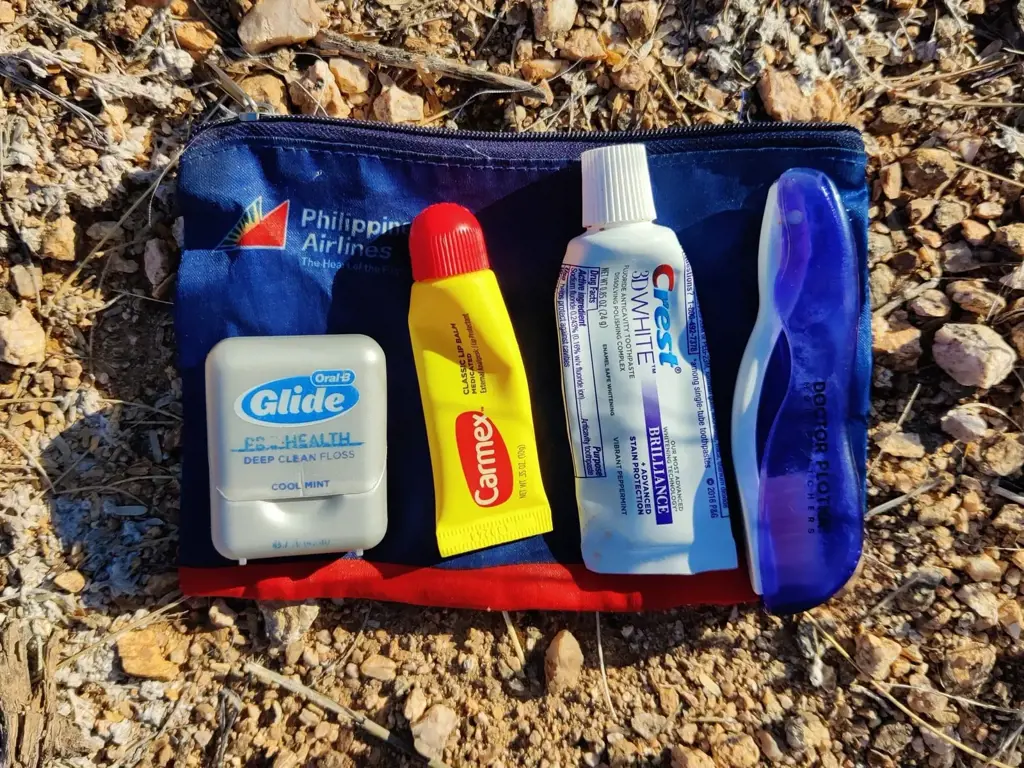
When going on a week-long camping trip, it is important to remember to pack personal hygiene items to ensure you stay clean and healthy during your outdoor adventure. While camping, you may not have access to running water or modern bathroom facilities, so it is necessary to bring items that will allow you to maintain good hygiene in the great outdoors. Here are some essential personal hygiene items to bring for a week-long camping trip:
- Biodegradable soap: It is important to use biodegradable soap when camping to minimize the impact on the environment. Choose a soap that is gentle on your skin and does not contain any harsh chemicals. This biodegradable soap can be used for washing your body, hands, and even your dishes.
- Toothbrush and toothpaste: Maintaining good oral hygiene while camping is crucial. Remember to pack a toothbrush and toothpaste to keep your teeth clean and fresh. Opt for a travel-sized toothbrush and a small tube of toothpaste to save space in your backpack.
- Toilet paper: While some campsites may provide toilet paper, it is always best to bring your own, just in case. Choose a compact roll or pack of toilet paper and keep it in a waterproof bag to prevent it from getting wet.
- Hand sanitizer: When soap and water are not readily available, hand sanitizer is a must-have item. Use hand sanitizer to keep your hands clean, especially before eating or preparing meals. Look for a travel-sized bottle that you can easily carry in your pocket or backpack.
- Wet wipes: Wet wipes are incredibly versatile and can be used for a range of personal hygiene needs. They can be used to freshen up your body, wipe away dirt, or even as a substitute for toilet paper. Choose biodegradable wet wipes to minimize your environmental impact.
- Deodorant: Camping can be physically exerting, and you may find yourself working up a sweat. Pack your favorite deodorant to keep you feeling fresh throughout the week.
- Feminine hygiene products: If you are a woman, it is important to pack your preferred feminine hygiene products. Consider the length of your camping trip and pack enough supplies to last the duration. It may also be helpful to bring a sealable bag to dispose of used products properly.
- Nail clippers and file: Keeping your nails trimmed and clean is essential for good hygiene. Pack a small set of nail clippers and a file to maintain your nails during the camping trip.
- Sunscreen and insect repellent: Protecting your skin from the sun's harmful rays and pesky insects is crucial when spending time outdoors. Pack a travel-sized bottle of sunscreen with a high SPF and an insect repellent to keep your skin safe and comfortable.
Remember, personal hygiene is important for your overall well-being, even when camping. By packing these essential personal hygiene items, you can ensure that you stay clean, healthy, and comfortable during your week-long camping trip.
Essential Items to Pack for Visiting Vienna in December
You may want to see also

Are there any specific items or tools that are useful for a week-long camping trip that I might not think to pack?
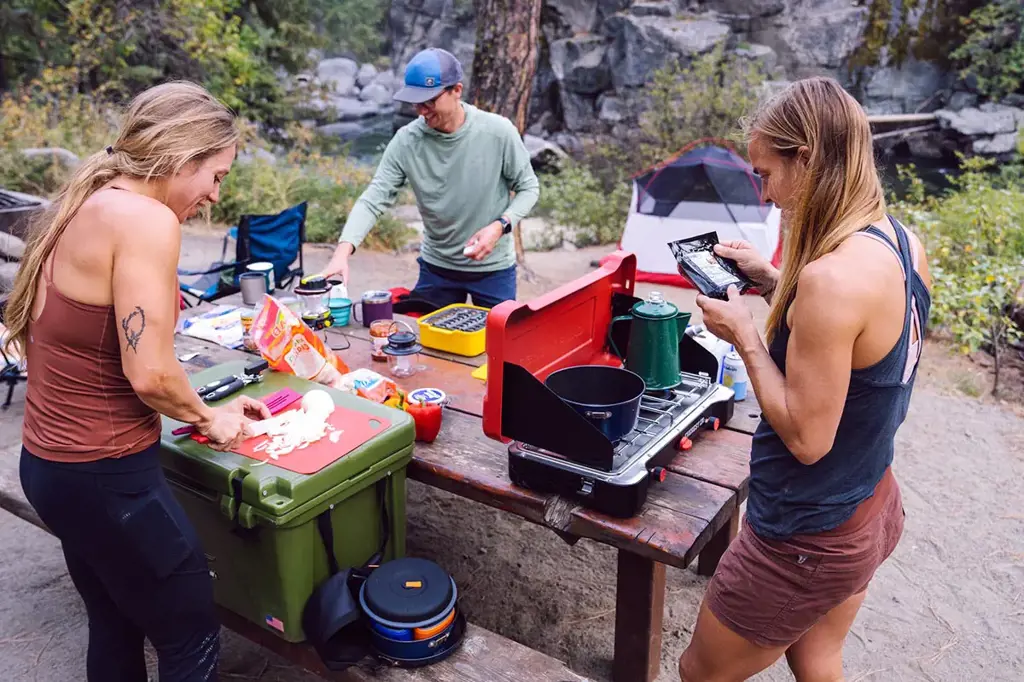
When embarking on a week-long camping trip, it is important to be prepared and pack all the necessary items for a successful and enjoyable experience. While there are many standard camping essentials such as a tent, sleeping bag, and cooking equipment, there are a few specific items and tools that can greatly enhance your camping trip. In this article, we will explore some of these items that you might not think to pack but will prove incredibly useful.
Portable Solar Charger:
In today's digital age, most of us rely heavily on our smartphones and other electronic devices. However, it can be challenging to keep these devices charged while camping. A portable solar charger is a fantastic solution for staying connected with the outside world while still enjoying the great outdoors. These chargers harness the power of the sun and ensure that you always have a reliable source of power, even in the wilderness.
Portable Shower:
After a long day of hiking and exploring, it is refreshing to have a shower. While traditional camping trips may involve roughing it and going without a shower, a portable shower can be a game-changer. These showers are compact and easy to set up, allowing you to clean up and feel refreshed even when you are far away from any facilities.
Camping Hammock:
When it comes to relaxing in nature, nothing beats the comfort of a camping hammock. These lightweight and portable hammocks are easy to set up between trees and provide the perfect spot to unwind, read a book, or simply enjoy the scenery. Pair it with a bug net to keep unwanted critters away, and you have a cozy oasis in the wilderness.
Portable Water Filter:
Access to clean drinking water is crucial during a camping trip, especially if you are exploring remote areas. While you can carry bottled water, it is unsustainable and cumbersome. Instead, consider investing in a portable water filter. These filters allow you to safely drink water from natural sources such as rivers and streams, ensuring you stay hydrated without adding to your load.
Campfire Popcorn Popper:
Making popcorn over a campfire is a delightful camping tradition that is often overlooked. A campfire popcorn popper, like an extendable popcorn basket or a campfire popcorn maker, allows you to enjoy fresh, hot popcorn while sitting around the campfire. It brings an element of fun and nostalgia to your camping trip, creating memories that will last a lifetime.
Biodegradable Soap and Wet Wipes:
Maintaining cleanliness and hygiene while camping is essential. Pack biodegradable soap and wet wipes to clean yourself, cookware, and any other items that may get dirty. These environmentally-friendly options are gentle on nature and will leave you feeling fresh and clean, even when modern facilities are miles away.
In conclusion, there are several specific items and tools that are incredibly useful for a week-long camping trip. Packing a portable solar charger, portable shower, camping hammock, portable water filter, campfire popcorn popper, and biodegradable soap and wet wipes can greatly enhance your camping experience. These items provide comfort, convenience, and the ability to enjoy nature without sacrificing modern necessities. So, before you embark on your next camping adventure, make sure to consider these often overlooked but invaluable items.
Essential Items for a Memorable Falls Creek Church Camp Experience
You may want to see also
Frequently asked questions
When packing for a week-long camping trip, it's important to pack a combination of lightweight and durable clothing. Opt for comfortable hiking pants, shorts, and t-shirts made of breathable materials like cotton or moisture-wicking fabrics. Don't forget to pack a few warm layers, such as a fleece jacket or sweater, as temperatures can drop at night. Also, pack a rain jacket or waterproof shell in case of rain.
Choosing the right footwear for a camping trip is crucial for comfort and safety. Invest in a sturdy pair of hiking boots or trail shoes that offer ankle support and a good grip. Make sure they are broken in before your trip to avoid blisters. Additionally, pack a pair of lightweight sandals or flip flops for wearing around the campsite or in the shower.
For a week-long camping trip, you'll need to pack various essential camping gear. This includes a tent, sleeping bag, sleeping pad or air mattress, camping stove or grilling equipment, cookware, utensils, a cooler or ice chest to store food and drinks, a lantern or flashlight, camping chairs, and a camping table. Don't forget to bring a camping knife, matches or a lighter, and a first aid kit for emergencies.
When planning your meals for a week-long camping trip, it's important to consider the perishability and weight of the food. Opt for lightweight and non-perishable food options like canned goods, dried fruits, nuts, energy bars, and dehydrated meals. Pack s'mores ingredients, instant coffee, and other snacks for a treat. Remember to bring a cooler with ice or freeze water bottles to keep perishable items like meat and dairy products fresh.
In addition to clothing, footwear, camping gear, and food, there are a few other essentials and miscellaneous items you should remember to pack. These include toiletries such as toothbrushes, toothpaste, soap, shampoo, and toilet paper. Bring a towel, sunscreen, bug spray, a hat, and sunglasses to protect yourself from the elements. Don't forget a camera or smartphone for capturing memories, and a good book or games for entertainment during downtime.


